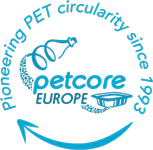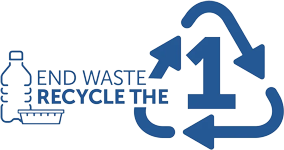Innovating Sustainability: The NGP MUSTAD Approach
Pioneering the Future of Eco-Friendly Food Packaging
At NGP MUSTAD, innovation intertwines with a deep-rooted commitment to sustainability, shaping our approach to transforming the food packaging industry. Our mindset, driven by a longstanding passion for packaging, propels us towards pioneering eco-conscious solutions. Embracing the "Made to be Remade" philosophy, we are dedicated to advance the circular economy, reduce dependance on virgin materials and enhance the lifecycle of our products.
Our efforts are exemplified through initiatives like the "Tray-to-Tray" project and the introduction of innovative technologies such as AIRCOR™ and Rigato™ trays, which underscore our commitment to environmental stewardship. These strides not only elevate the standards of packaging quality and efficiency, but also align with global sustainability goals. At NGP MUSTAD, we're not just creating packaging, we're shaping a sustainable future with every solution we innovate.
 Aircor™
Aircor™
Traditionally, fruit punnet bases have required an additional layer of bubble padding attached with a glue adhesive to protect soft fruit from bruising and spoiling in transit. However, the padding must be removed from the container to be properly recycled.
The AIRCOR™ cushion is now integrated into the base of NGP MUSTAD 100% recycled PET (R-PET) fruit punnets. AIRCOR™ is a recyclable eco-designed product that augments the protection of fruit thanks to a base that acts as a shock absorber, separating fruit from any juice that might escape and improving air circulation.
This eliminates the need for a separate bubble pad, conserves resources without compromising on our high standards of product protection and quality, ensuring that NGP MUSTAD operates as a sustainable fruit punnet supplier. AIRCOR™ cushion technology makes life easier for consumers, who can now simply throw the whole fruit tray into their recycling bin without having to worry about separating the bubble padding first. That gives them peace of mind knowing that not only is there less plastic in the punnet and that 100% of the container can be recycled back into food-grade packaging R-PET.
NGP Mustad, Europe's first to supply full range of easier-to-recycle punnets that use less plastic Rigato™ Mono-material packaging.
The Rigato™ ridged packaging is sealed using a series of channels that run around the sealing rimming instead of applying a layer of polyethylene or adhesive, which are typically used to seal the lid.
Under the same sealing temperatures and dwell time, the top web adheres to the peaks, creating the seal. During filling-line trials of Rigato™, the problem of silicon seals and humidity contamination on mono R-PET sealing of single material packaging was cut to almost zero.
As mono-material packaging, the tray is capable of being fully and easily recycled back into food-grade R-PET.
Eco-Designed
Plastic recycling starts with design
In an ecological assessment of packaging and packaging design, one thing becomes clear: the most sustainable packaging is that which doesn't exist. Our motto in the REdesign action area is the same: we do without packaging wherever it's not strictly necessary.
Nevertheless, we still need to take the entire life cycle assessment into consideration. When all is said and done, packaging protects perishable, sensitive food, prolongs its shelf life and thereby prevents food losses, fulfills hygienic requirements and also helps customers to carry home their purchases. For example, packaging can increase the shelf lives of some fruits and vegetables by up to a fourth. Using plastic as a packaging material and dispensing with its use consequently leads to a constant balancing act between plastic reduction and food loss.
Where Packaging Is Necessary, We Design it, as far as Possible, to be More Sustainable and Recyclable REdesign

We design recyclable packaging and closed loops
Sustainably Well Designed through our Sustainable Packaging Design Compass:
of materials through right weighting, simplification or avoidance.
of packaging for manufacturing and supply chain.
of packaging materials in a more sustainable way.
of packaging for material recovery.
for lower impact materials.
of packaging multiple times.
of the product through better packaging.
the full product-pack-system.
R-PET 2 Clear mono APET
NGP MUSTAD reducing carbon footprint using 7.000 metric tons/year of PET recycled raw material in substitution of virgin resin, for saving of 9.891 metric tons of CO2 eq.




